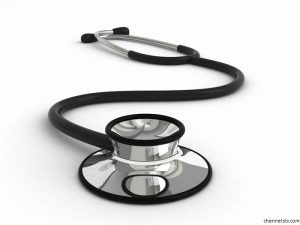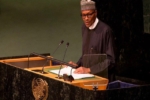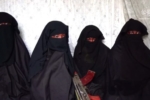For over two decades that I have been engaged in media practice and other allied advocacy activities in Nigeria, one issue that has mystified me is the failure of newspaper editors to scale up reportage of health issues.
With the benefit of hindsight, the typical Nigerian newspaper editor rates political stories far and above important existential issues like health.
I used to think that the fundamental reason for this distorted scale of preference for political rather than health-related stories is the foundational mapping of media ownership long before the country gained independence in 1960.
Prior to Nigeria’s political independence, most of the prominent newspapers were owned by political icons like Dr. Nnamdi Azikiwe and Chief Obafemi Awolowo. Most of what these earliest newspapers were reporting were basically political issues related to Nigeria’s efforts to gain independence from Britain.
But the above reason does not really add up, especially in our contemporary era in which media ownership has tilted towards pure economic investments and its managers are not primarily concerned about using their media outfits to promote political aspirations.
Majority of the print and electronic media houses are in the hands of non-career politicians but the focus of the news coverage has remained politics and such strategic issues like health are still pushed to the background.
It is such a shocking phenomenon that not even the health challenges of late President Umar Musa Yar’Adua (who died from health-related complications while in office) and now President Muhammadu Buhari, have necessitated a paradigm shift in the focus of news reporters and their editors, even when these political officers have had to travel to places like Britain, Switzerland, Germany and even Saudi Arabia in search of cures for their health challenges.
The question remains why Nigerian media houses have not elevated health issues to the status of major news stories, even when developed economies such as the United Kingdom and the United States of America have persistently made health the most significant item in their daily news reports.
These nations also have excellent and transparent record keeping practices even as the applications of Freedom of Information laws (FOI) regarding public expenditures for health and other infrastructure and services are democratically made available on request. Britain is a perfect example of where much of the privately owned electronic and print media have consistently focused on health issues.
But, why have editors in Nigeria failed to cash in on the failure of political office holders to consult local doctors and hospitals to pose the correct question of where all the humongous health sector budgetary releases have disappeared to?
For instance, the budget for Aso Rock Presidential Clinic dwarfed that of the entire public health sector in 2016, but President Buhari has had to frequently travel to the United Kingdom in search of better healthcare.
Why then are journalists and editors in private media organizations not asking the right questions to assist Nigerians to locate the whereabouts of the billions of dollars said to have been released to the managers of the health sector since 1999 till date? Even billions donated by World Health Organization for scaling up awareness campaigns about HIV/AIDS are stolen but no heavy weather is made of this crime against humanity in our traditional mainstream media.
The fact is that since the local media often report politics, these politicians in public offices now view themselves as “superstars” and folk ‘heroes’ who should be adored by millions of the heavily impoverished populace. In Britain, politicians are regarded as servants of the people. But in Nigeria, political office holders operate like emperors. This is why we read paid advertisements in newspapers praising politicians for implementing aspects of their capital budgetary blueprints such as the construction of poor quality road infrastructure with public funds, as if the money is from their own pockets.
With the exception of a handful of online media, most private media pay little attention to the frightening fact that, year in, year out, Nigeria budgets billions for the public health sector but yet public health services are not available for millions of both rural and urban poor.
The case of the 2016 State House Clinic budget is scary and till date there has been no effort made by the media in line with section 22 of the Constitution to demand answers on why the politicians neglect our local health institutions only to gallivant around the world on health tourism. The Nigerian government in 2016 reportedly spent more on capital projects at the State House Medical Centre than it provided for the 16 teaching hospitals belonging to it.
The State House Clinic reportedly got N787million more in capital allocation than all the 16 teaching hospitals combined. The State House Medical Centre is a facility that provides healthcare for President Muhammadu Buhari, Vice President Yemi Osinbajo, their families and other employees of the Presidency, all possibly less than a thousand, so says Premium Times online medium.
Federal teaching hospitals cater for the health needs of millions of Nigerians, trained medical doctors and other health professionals for the nation while also serving as top medical research centers.
A breakdown of the 2016 Appropriation Bill shows that a total of N3.87billion was allocated for capital projects at the State House Clinic. In contrast, the country’s 16 federal government-owned teaching hospitals individually only got a fraction of the allocation made for the presidential clinic.It may be safe to conclude that since these humongous amounts are reportedly released for just the presidential health center but yet the number one citizen travels at huge public expenses to the United Kingdom to cater for his health challenges, therefore there has to be a forensic financial audit of the capital and recurrent budgets spent for this privileged State House clinic.In Britain, much of the media coverage is centered on the health sector.
In fact even the troubling immigration crises facing Europe is tied to Public health care because European countries scientifically allocate subsidies to care for the emergency healthcare of their own people captured in their qualitatively drawn data unlike in the less developed country like Nigeria whereby record keeping is criminally poor. . The western media focuses on how public policies of elected officials ought to promote better life for the people but in Nigeria the media promotes stories that focus on using public fund to better the life for only the political elite. This dysfunctionality must change.
Source: Sunnewsonline
This page has been viewed 687 times
Tags : Editors choice






























